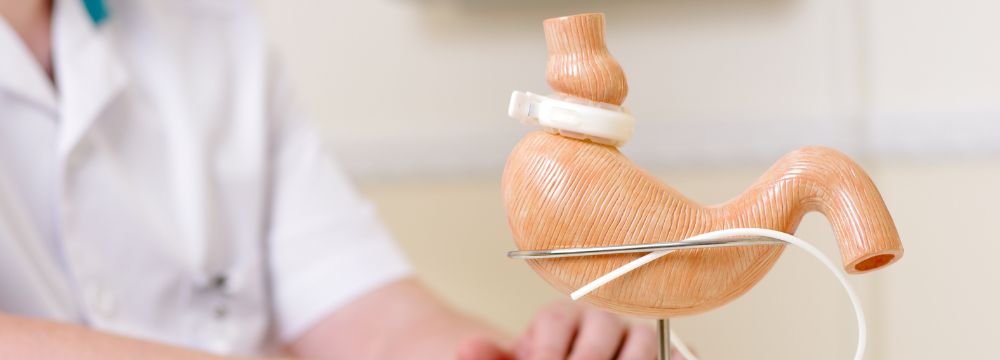Should You Use a Continuous Glucose Monitor if You Don’t Have Diabetes?

We live in a world of self-diagnosis. Gluten sensitivity, allergies, ADHD, you name it – it’s all diagnosed and discussed online…seemingly everywhere. But monitoring your glucose isn’t something to mess around with. So, if you don’t have diabetes or have had bariatric surgery and your diabetes is now in remission, you may wonder if you need a continuous glucose monitor (CGM). It’s a common concern, and it’s okay not to have all the answers. That’s why you’re here. Check out the rest of the blog to see if a CGM makes sense.
Could Supplementing Be the Answer to Excess Weight Problems?

If you’ve spent any time listening to podcasts or many YouTube influencers, you will most certainly come across stories and discussions about how nutritional deficiencies may be the root cause of obesity and, in a similar fashion, how supplementing with specific vitamins or minerals may be the answer to excess weight issues. In this article, we will discuss the most significant nutritional shortfalls in America and whether these deficiencies contribute to overall health and weight gain.
Before we start, it’s important to remember that there can be a significant difference between the recommended daily allowance (RDA) of a vitamin or nutrient and how much your body needs. For one, dietary allowances are based on somewhat older data that may or may not be compatible with what we know today. On the other hand, we don’t know the full breadth of interactions between supplements, nor do we understand exactly how an individual needs different levels based on their genetic predispositions and environmental circumstances. As such, before starting any supplementation regimen, it’s essential that you speak to your primary care physician and a weight loss specialist like Dr. Chang to understand how these supplements may work best for you.
Wegovy / Ozempic and Mounjaro for Weight Loss…Facts and Fiction
What are Wegovy / Ozempic and Mounjaro? How do they work?
Wegovy and Ozempic are the same medication, semaglutide, a glucagon-like peptide-1 (GLP-1) agonist. Mounjaro (a generic name is “tirzepatide”) is a GLP-1 receptor agonist and a glucose-dependent insulinotropic polypeptide (GIP) receptor agonist. The GLP-1 and GIP receptors lead to increased insulin secretion by your pancreas and increased sensitivity to insulin. They also block your liver from producing sugar. This combined effect helps to reduce blood sugar levels. GIP slows down the emptying of the stomach and lowers stomach acid. There are also GLP-1 receptors in the brain, and it’s thought these drugs work in the brain to suppress appetite. These drugs stimulate receptors throughout the body to suppress appetite, lower blood sugar, and ultimately, assist with weight loss.
Wegovy and Ozempic are longer-acting versions of older GLP-1 medications such as Victoza, Saxenda, and Trulicity, which you may have previously heard of.
What Happened to The Lap-Band?

If you were considering bariatric surgery in the relatively recent past, you almost certainly came across the laparoscopic adjustable gastric band. This surgical system goes by the brand name Lap-Band. FYI, there was also a competing band known as the Realize Band, which is no longer on the market. Gastric banding was a revolutionary procedure when it was first devised. For one, it didn’t require any stomach stapling and was adjustable and reversible. Patients who were not losing enough weight could have saline (saltwater) inserted into the band and tightened, while those experiencing symptoms from a tight band could have it loosened with a simple procedure to remove some liquid. This was revolutionary compared to the permanence of most stapled bariatric procedures.
How Wegovy and Ozempic Have Changed the Face of Weight Loss

Incredibly, less than 10% of obese patients who try to lose weight through traditional diet and exercise can maintain that weight loss over the long term. Despite the billions of dollars spent on diet and exercise programs, some of which may offer questionable value, we don’t seem to have made any progress toward solving the obesity epidemic in the United States. With 2/3 of adults in the US overweight and approaching 40% obese, it’s no wonder that “miracle” drugs (known as Semaglutide or GLP-1 receptor agonists) have become so popular to the point of nationwide and even worldwide shortages.
Can Your BMI Be Too High for Bariatric Surgery?

We must always discuss minimum qualifying criteria for bariatric surgery with our patients. For insurance coverage, a patient’s body mass index or BMI must be at least 35 with one or more obesity-related comorbidities or 40 or more regardless of comorbidities. Recent guidance from ASMBS and IFSO has reduced those recommended BMI levels, but insurance has yet to cover lower BMI surgery. That said, we discuss the upper limits of BMI far less commonly because no official guidelines to that end exist. With TV shows showing extreme BMI patients going under the knife (Think “My 600Lb Life) it’s certainly worth discussing because we see more high BMI patients than ever before. So, what are the challenges of working with a very high BMI patient?
Insurance Tips for Bariatric Surgery

When we think of any surgery, particularly bariatric surgery, we may wonder how to pay for it. Bariatric surgery is the only long-term proven solution for obesity, a disease that has reached pandemic status yet remains woefully under-treated. As a matter of policy, many people, even insurance companies, still consider it an elective procedure. As such, the insurance process is not as straightforward as other essential medical coverages, and some insurance companies do not cover bariatric surgery at all. One of the most significant barriers to bariatric surgery adoption is the insurance process and the paperwork required for a pre-authorization. While we try to guide our patients through the process as best we can, most of the work ultimately relies on them getting their medical clearances quickly and filling out their paperwork accurately.
To help, we have developed these five tips to make the insurance process more accessible and remove some uncertainty from what is otherwise a very exciting and hopeful journey.
New 2022 Guidelines for Weight Loss Surgery

You may have heard the big news about bariatric surgery. The American Society for Metabolic and Bariatric Surgery (ASMBS) and the International Federation for the Surgery of Obesity (IFSO) updated bariatric procedure guidelines at the end of 2022. This was the first update in over 30 years. Body Mass Index or BMI was, and still remains, the primary determinant of whether someone qualifies for bariatric surgery. However, the BMI ranges have been updated to better reflect what we know about obesity and its effects.
To fully understand the implications of this new guidance, we must know more about the body mass index or BMI. Body mass index is a relatively simplistic calculation of height versus weight to estimate a patient’s ideal weight. According to the index, patients can be underweight, normal, overweight, or obese. First and foremost, these BMI numbers cannot accurately predict the diseases associated with morbid obesity. For example, some patients with a BMI of 30 may have significant comorbidities, while others with a BMI of 35 may have fewer and less severe problems. When we reach the higher BMIs – 40 and over – most patients have one or more comorbidities. Also, the BMI does not consider gender differences, muscle mass, body structure, and other critical factors that can help us determine if a patient is a good candidate for surgery. For example, a bodybuilder will often classify as obese when they certainly are not.
How Quickly Can You Get Bariatric Surgery?

Many of our patients are excited when they decide bariatric surgery is the right option for their weight loss and future health. For most, it is a decision, years or even decades in the making. Many have tried and failed with diet after diet, finding themselves frustrated, regaining weight, and sometimes putting even more on. This weight loss, weight gain cycle can foster disappointment and eventually resign them to thinking that they are stuck with a lifelong weight issue and the diseases that come with it. It’s also important to acknowledge that the cost of bariatric surgery, whether using insurance or not, is significant and requires emotional dedication. There is a potential and major financial investment associated with weight loss surgery.
The Difference Between TIF and Traditional Surgical Fundoplication
Before we get into a full comparison between TIF and traditional fundoplication, it is worth noting that fundoplication surgery has been exceptionally effective in the treatment of severe or uncontrolled GERD that has not responded to other lifestyle and medication interventions. The fundoplication has been the gold standard in reflux treatment for decades and continues to be used widely across the country and around the world. Millions of people have benefited from the immediate relief that fundoplication offers.

However, even the best procedures can be improved and the Transoral Incisionless Fundoplication or TIF is, in our opinion, an effective and less invasive option that gives many of the benefits of a traditional fundoplication without many of the risks including difficulty swallowing, gas bloat, difficulty eating and the possibility of an incisional hernia. Continue reading

